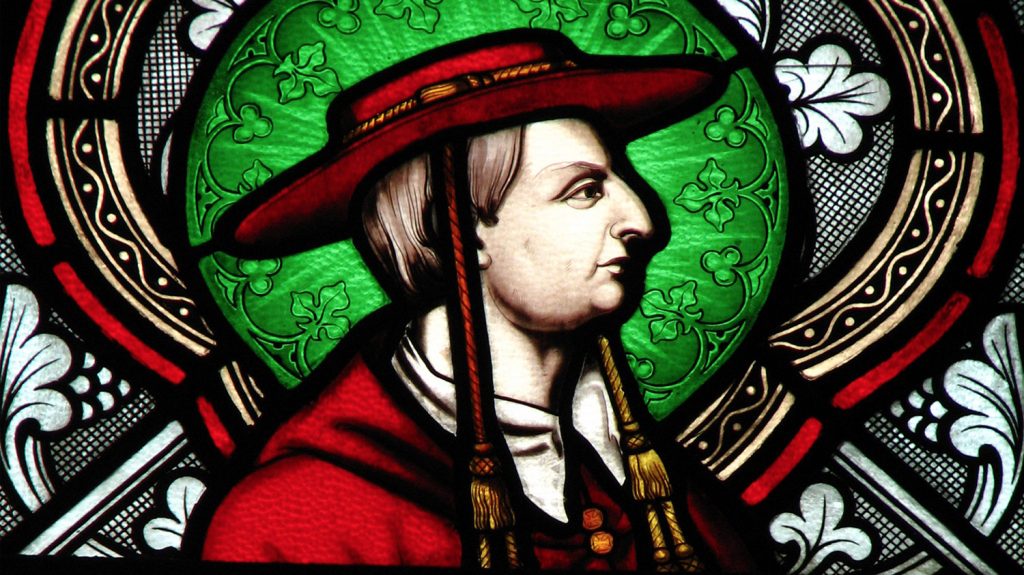Pope Innocent IV was appointed today in 1243. He was the first Pope to dress cardinals in their distinctive red hats. Two years into his reign, at the Council of Lyon, he directed them to wear a red galero, a wide-brimmed hat with tassels (above). The galero was dropped in 1969, but cardinals still wear red birettas – a box-like hat with a pom-pom on top.
Today is the feast of St Pontius Pilate and his wife St Claudia in the Ethiopian Orthodox Church. Pilate’s actions in the passion of Jesus are given a positive spin in the wonderfully-named Book of the Cock, an obscure apocryphal Gospel in which Jesus resurrects a cock and sends it to spy on Judas after the Last Supper – hence the title. During the story, Pilate does everything he can to avoid sentencing Jesus, while his whole family say they’re ready to die for him. The Book of the Cock enjoys widespread popularity in Ethiopia, and is read alongside the four Gospels in church at Easter.
John Wesley’s Journal, chronicling his life on the road preaching, notes the following for this day in 1770: ‘I preached at Tadcaster at noon, and at Pateley Bridge in the evening. It rained, as usual, all the time; but the congregation stood as still as the trees.’
Today in 1530, the newly written Augsburg Confession, encapsulating the faith of the early Lutherans in 28 handy statements, was read out to Charles V, the Holy Roman Emperor. Charles, who was firmly Catholic, wanted to restore religious and political unity in his Empire, which was under attack from the Ottoman Turks, and had asked for the confession to be written. It became one of the key documents of the Protestant Reformation.
‘There have been great complaints concerning indulgences, pilgrimages, and the abuse of excommunications. The parishes have been vexed in many ways by the dealers in indulgences… Issues of this sort we have passed over so that the chief points in this matter, having been briefly set forth, might be the more readily understood.’ Augsburg Confession
It’s the feast day of Prosper of Aquitaine, the 5th century writer, whose books popularizing the complex theology of St Augustine were in demand for over 1,000 years. Prosper’s Epigrams, giving short quotes by Augustine and memorable poems to comment on them, were one of the main ways Augustine’s thought was disseminated throughout the Middle Ages. Alongside Aesop’s Fables and a few other popular works, Prosper’s handbook, almost unknown today, was an essential part of the curriculum for schools and monasteries, making theology understandable – and maybe even enjoyable – to generations of students.
Image: Lawrence OP
